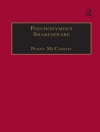Much more than an archive, these are the vivid, still pertinent voices and messages of the pioneers worldwide.
The nineteen articles chosen by the editors of Applied Theatre Research represent key themes and elements from the early days of applied theatre that are still – and indeed now more than ever – relevant. They are all high-quality articles, some of which were highly influential in their own time. All of them still have plenty to say to today’s applied theatre, both in their own terms and sometimes in terms of how their publication influenced the development at the time of this still-expanding field, or refracted it in ways that give us new insights with hindsight.
They have been arranged in sections according to some of the key themes – and problematic issues – that were discovered, thought out and sometimes stumbled across by the pioneer writers in the collection. Each section is preceded by a critical editorial commentary on those themes, besides thorough introductions to all the articles and in some cases re-evaluations. The editors have added substantial additional new material to the collection and in doing so, bring their own applied theatre experience to bear on these themes, as they raise general questions that are wide-ranging, contemporary and urgent: from the vital and contested issues of power, partnerships and the giving of voice through theatre to applied theatre’s proactive response to COVID-19, to the need to identify, take account of and address the needs of all stakeholders in any applied theatre project.
The articles are grouped in six sections, covering areas such as diversity of geography, community contexts, forms of applied theatre and organizational factors that characterize applied theatre; the definition and nature of applied theatre; how the best intentioned projects could be compromised by any of the many opportunities for applied theatre to go wrong; opportunities for change it can offer and the incorporation of new media technologies, and ethnographic performance, two factors that have now become major preoccupations for our field, particularly in the years since the articles were written. The final section recognizes that applied theatre has been around not for 30 years, but for thousands, and in countless cultures.
The editorial chapters have strong connections with the rest of the book, but are written with the editors’ deep insights into the field, and are sharp in their focus and context. The book offers useful insights into the start of applied theatre and its development as an area of practice and research. The chapter collection is relevant and includes influential names in the field who have contributed significantly to the development of applied theatre over time.
The primary market will be academics and advanced practitioners in applied theatre, drama education and theatre studies – including the expanding fields of drama therapy, theatre and health etc. It will also be useful for educators exploring creative pedagogy and drama in education strategies across the curriculum.
It will be valuable introductory background reading for advanced undergraduate and post-graduate students in drama, theatre studies and theatre arts, performance studies and community theatre.
Spis treści
Introduction: Then and now
John O’Toole
PART 1: INSPIRING STORIES
1. Life drama Papua New Guinea: Contextualising practice
Andrea Baldwin
2. Audience participation, aesthetic distance and change: Reflections on Fifty Square Feet, a theatre in education programme on urban poverty
Chan Yuk-Lan (Phoebe)
3. Converging worlds: Fostering co-facilitation and relationships for health promotion through drama at the grassroots
Christine Sinclair and Andrea Grindrod
4. Shakespeare in Nicaragua
Els van Poppel
PART 2: WHAT IS APPLIED THEATRE?
5. Applied theatre: Problems and possibilities
Judith Ackroyd
6. Applied theatre and the power play: An international viewpoint
Bjørn Rasmussen
7. Conversations with the devil
Tim Prentki
8. Applied theatre: An exclusionary discourse?
Judith Ackroyd
PART 3: RISKY BUSINESS: GOOD INTENTIONS AND THE ROAD TO HELL
9. Ethical tensions in drama teachers’ behaviour
Shifra Schonmann
10. Community theatre in a South Samic community: The challenges of working with theatre in small communities
Tordis Landvik
11. Spectacular violence and the Kachahari theatre of Sindhuli, Nepal
Alberto Guevara
PART 4: THE DESIRE FOR CHANGE: VOICE, POWER AND PARTNERSHIP
12. Tabula rasa: Starting afresh with classroom drama
Kathleen Gallagher
13. Making a break for it: Discourse and theatre in prisons
James Thompson
14. Evaluating the efficacy of community theatre intervention in/as performance: A South African case study
Kennedy Chinyowa
15. ‘We like good disco!’: The ‘public sphere of children’ and its implications for practice
Nora Roozemond and Karola Wenzel
PART 5: THEATRE OF INNOVATIONS
16. Theatrical reflections of health: Physically impacting health-based research
Julia Gray
17. Playing the game, role distance and digital performance
John Carroll and David Cameron
PART 6: A NOD TO THE ANCESTORS
18. Educational and critical dimensions in Turkish shadow theatre: The Karagöz Theatre of Anatolia
Mehmet Takkaç and A. Kerin Dinç
19. Christmas traditions and performance rituals: A look at Christmas celebrations in a Nordic context
Stig A. Eriksson
O autorze
Penny Bundy is an adjunct professor at the Griffith Institute for Educational Research. Prior to her retirement, Penny was one of Jennifer’s Ph.D supervisors and is proud to support her in the presentation of this article.
Contact: Adjunct Professor, School of Education and Professional Studies, Griffith University, Australia.












